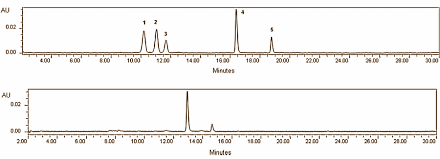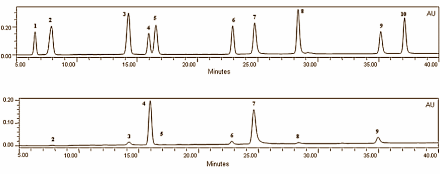|
Definition: "An ergogenic aid is any substance or phenomenon that enhances performance "
|
|
||||||||
04.09.2012 |
|
|
What's wrong with Acai Berry Select?
The 22-year-old fireman who sparked this story was using a slimming product that contained acai. The man had decided it was time to get fit and had started training three months previously. He spent 2-3 hours a day doing strength training, cardio and aerobics. The man felt he needed a boost so two weeks before the incident he had started to take Acai Berry Select the composition of which is shown below.
The man was also taking medication. He had been taking 5 mg amlodipine to lower his blood pressure for the previous two years.
After he'd been using the acai supplement for three days things went wrong. The man's urine became dark and he developed severe muscle pain. In addition he was tired and weak. He admitted himself to hospital.
The doctors noticed that the man's blood creatine-kinase level had gone up to 84000 IE per litre. On his second day in hospital it rose higher to 172000 IE per litre. This and the reddish brown colour of his urine were indications that his muscles were breaking down Ė known in medical circles as rhabdomyolysis.
The man stopped taking the acai supplement, but continued to take his medication. He recovered quickly: on the third day in hospital his urine had returned to normal. His creatine-kinase level plummeted and on the fifth day the doctors sent the fireman back home. He started training again, continued to use his medication but didn't touch the acai supplement.
Four weeks later he told the doctors that he was back training at the level he had been before becoming ill, and was having no problems.
The doctors had become curious and decided to analyse the supplement. The first thing they discovered was that the product contained no acai at all.
The first figure below shows a high-performance liquid chromatogram of a standard extract of acai. The figure underneath shows a similar chromatogram but of Acai Berry Select. The supplement contains none of the substances that are indicative of acai. It does contain a couple of other substances, but the researchers don't know exactly what. They fear it may be compounds that donít belong in supplements.
1 = cyanidin-3-O-glucoside; 2 = cyanidin-3-O-rutinoside, 3 = pelargonidin-3-O-glucoside, 4 = cyanidin, 5 = pelargonidin.
Acai Berry Select also contains an extract of green tea, so the researchers looked to see if they could identify this. Once again, the upper figure is a high-performance liquid chromatogram of a standard green-tea extract, and the lower one is a chromatogram of Acai Berry Select.
1 = theobromine, 2 = gallocatechin, 3 = epigallocatechin, 4 = caffeine, 5 = catechin, 6 = epicatechin, 7 = epigallocatechin gallate [EGCG], 8 = gallocatechin gallate, 9 = epicatechin gallate, 10 = catechin gallate.
So the product did contain green tea, although the amount of all components other than EGCG was minimal. The supplement did contain a considerable amount of caffeine.
The enzymes that break down amlodipine are inhibited by EGCG and caffeine, the researchers speculate. When the fireman started to take Acai Berry Select it caused the concentration of amlodipine in his body to rise so high that the medicine started to break down his muscles. Another possibility is that unknown ingredients in Acai Berry Select also played a role.
"The use of dietary supplements should be assessed and considered as a possible risk factor in patients who develop signs and symptoms of rhabdomyolysis", they conclude. "The product used by our patient was essentially misbranded and contained no acai berry. Clinicians should be aware that all dietary supplements may vary in uniformity and contain unknown contaminants."
Source:
More:
|
|




